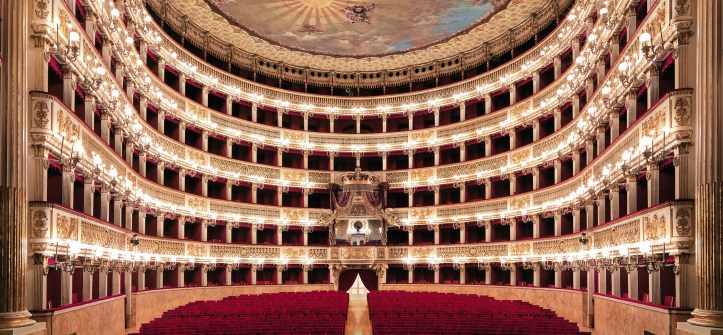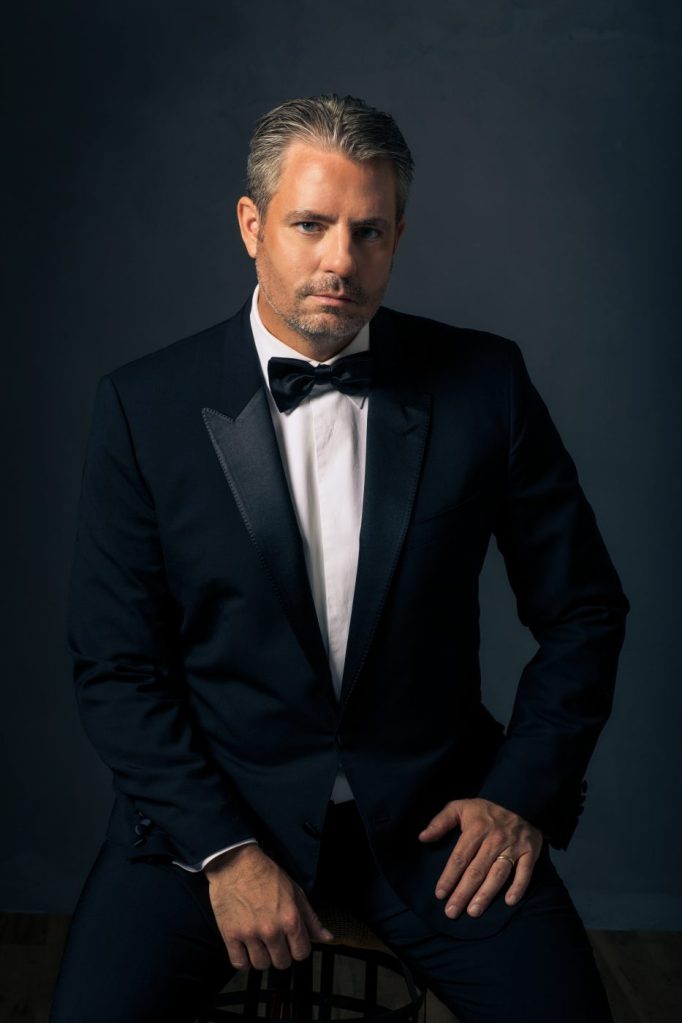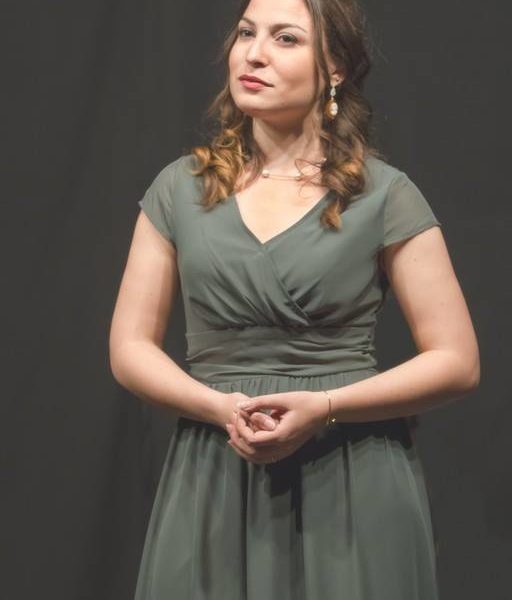Bellini – Beatrice di Tenda
Filippo – Andrzej Filónczyk
Beatrice – Jessica Pratt
Agnese – Chiara Polese
Orombello – Matthew Polenzani
Anichino – Li Danyang
Rizzardo – Sun Tianxuefei
Coro del Teatro San Carlo, Orchestra del Teatro San Carlo / Giacomo Sagripanti.
Concert performance.
Teatro San Carlo, Naples, Italy. Saturday, September 23rd, 2023.
This evening marked my very first visit to the Teatro San Carlo, one of the world’s most exquisite theatres. Under the artistic management of Stéphane Lissner, the house has resumed its place as one of the most respected lyric theatres in the world, attracting some of the foremost artists before the public today. The house is of incredible beauty, the auditorium intimate, seating just under 1400, the acoustic warm and generous, and the welcome extremely cordial. I also appreciated how staff were proactive in reminding patrons not to use their cellphones during the performance – although the pre-show announcement could have been more prominent.

Tonight, the house offered us a concert performance of Beatrice di Tenda, to mark the exact date of Bellini’s death 188 years ago and the 190th anniversary of the opera’s premiere. One doesn’t get the opportunity to hear the work often. That really is a shame because it contains some magnificent music and is a superb showcase for the soprano in the title role. The plot is wonderfully over the top. Beatrice, having married Filippo following the death of her first husband, is deeply unhappy. As indeed is Filippo, given that he has his eye on the comely Agnese, while Orombello wants to be with Beatrice, and both are betrayed by Agnese in her jealousy because she wants Orombello. Beatrice is sentenced to death for adultery, seeing her demise as freedom from a life of earthly pains, and ends the evening with a bravura final scene sending the audience out into the night in a state of exhilaration. Tonight, we most definitely had a cast that was more than up to the challenges of the work.

I will, however, start with a reservation – that was Giacomo Sagripanti’s conducting. The positive was that he generally maintained control of his forces, the awkward tempo changes in the Act 1 finale were efficiently managed. However, the initial ladies’ chorus threatened to fall apart, with ensemble between the orchestra and the sopranos and mezzos extremely precarious. Fortunately, that was the only part of the evening where things threatened to go off the rails. I found Sagripanti’s direction to be rather staid, focusing on a genteel beauty of sound. The strings were velvety in tone and soft in attack, when I longed for them to be sharper and more precise. There was, however, some extremely eloquent horn playing. It struck me that Sagripanti was very much accompanying rather than driving the performance. I wanted to hear him take more of a lead, to propel the drama forward, to give his singers something rhythmically irresistible to take flight on. Instead, his reading ambled along agreeably under the surface. We’re so lucky today to have conductors grounded in performance practice, such as Giovanni Antonini or Riccardo Minasi, who’ve shown us how this music can and should go. I did wish that Sagripanti had taken a more rhythmically dynamic approach. The San Carlo chorus, prepared by Vincenzo Caruso, was extremely enthusiastic. The sopranos and mezzos vibrated generously, while the tenors and basses sang with admirably firm tone.

Vocally, this was most definitely an evening of bel canto. Andrzej Filónczyk. Make a note of this name. The Polish baritone is not even 30, having been born in 1994, and is already a bel canto stylist of distinction. The voice is firm throughout the range and seemingly defies gravity, with a top that seems limitless. He implicitly understands how this music goes, phrasing with innate musicality and beauty of line. There were very occasionally a few intrusive aspirates in the line, and it did strike me that there is a slight breathiness to the tone. Yet he’s capable of spinning some impressively long lines, with some staggering control of dynamics, able to pull back the tone to a thread and still be heard, and his Italian is impeccable. This is a singer who is clearly an heir to the great Polish bel canto tradition and I very much hope that he has good people around him to help him thrive and ensure he isn’t pushed too far, too soon.

Orombello is a good role for Matthew Polenzani at this stage in his career. He brought to the role his princely line and ringing top. It did strike me that his tenor has dried out a little with the passage of time at fuller dynamics, but Polenzani did give us some ravishingly beautiful soft singing, shading the tone with delicacy and demonstrating some expansive phrasing. As Agnese, Chiara Polese sang her opening, off-stage, harp-accompanied number with great poise, bringing to it an improvisatory freedom. When she appeared on stage, her crystalline soprano was agreeable in tone. That said, her intonation was rater creative in places, although she did blend most beguilingly with Jessica Pratt’s Beatrice in their duet in the final scene. Both Li Danyang and Sun Tianxuefei were positive presences in their brief contributions.

Then there was Pratt. I wouldn’t normally comment on a singer’s couture in a concert performance such as this, but Pratt most certainly made an entrance in the first act, in a magnificent long, flowing sky-blue dress that looked like a costume from a very traditional staging of the work. She then changed into a similarly grand black number for the second act. Pratt looked every inch the regal figure even before she opened her mouth. I must admit that my previous encounters with her have left me rather cold. Tonight was different. This is a beast of a role for the singer, but when done well the pleasure for the audience is limitless. Pratt gave us some deliciously limpid soft singing, floating the tone on the breath with exquisite ease. She embellished her lines with taste and imagination – and a genuine trill. Yes, some of her runs were a bit bumpy and the very highest acuti did tend to thin out somewhat. That said, it was absolutely thrilling to watch a singer bring such total command to the role, those hours of work in the studio apparent in the absolute and complete command of everything the role could throw at her. Pratt rose to a final scene of uninhibited bravura, ornamenting the line with imagination even in the highest reaches, taking risks with adding additional trills and excursions to the stratosphere. The audience went absolutely wild for her. It was exhilarating.

This was one of those evenings when one left the theatre completely uplifted after watching a group of singers perform the most exciting feats of virtuosity. It gave me immense satisfaction to watch Filónczyk give us such superb bel canto baritone singing and Pratt take control and give us singing of uninhibited virtuosity. The singing across the board was excellent. Yes, the conducting was genteel and relaxed, but tonight was all about the singing and we really did get a feast of bel canto. As mentioned above, the audience reaction was absolutely ecstatic.
